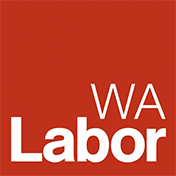
The National Union of Students (NUS) is a confederation of student unions in the United Kingdom. Around 600 student unions are affiliated, accounting for more than 95% of all higher and further education unions in the UK. Although the National Union of Students is the central organisation for all affiliated unions in the UK, there are also the devolved national sub-bodies NUS Scotland in Scotland, NUS Wales in Wales and NUS-USI in Northern Ireland.

Labour Students is a student organisation within the Labour Party of the United Kingdom. It is a network of affiliated college and university clubs, known as Labour Clubs, who campaign in their campuses and communities for Labour's values of equality and social justice.

Liberation Left is a factional grouping operating within the National Union of Students of the United Kingdom.

King's College London Students' Union (KCLSU) is an independent charitable organisation that works to further the interests of its members. It governs the 300 student societies and activity groups at King's. KCLSU claims to be the oldest students' union in England.
The Australian Student Environment Network (ASEN) is the national network of many campus environment collectives in Australia, formed at the 1997 Students and Sustainability convergence in Townsville. People from ASEN facilitate communication between environment collectives and co-ordinate national projects and campaigns. ASEN is particularly known for cultivating intersectional social justice analyses and critiques amongst young environmentalists, facilitating direct action campaigns, projects towards just transitions and indigenous solidarity work. ASEN is the longest running, and one of the largest, youth environment networks in Australia.
The Organised Independents are a grouping within the National Union of Students of the United Kingdom.

The University of Sydney Students' Representative Council (SRC) is the representative body for undergraduate students at the University of Sydney. In addition to a student-elected council and student advocacy portfolios, the SRC coordinates a free legal service and caseworker service for all undergraduate students at the University of Sydney. These services provide legal, academic appeal, migration, tenancy and study advice to students. The SRC has a reputation as Australia's most radical student union, and has been instrumental in leading student activism on a range of issues including education, feminist justice, environmentalism, First Nations justice and queer rights. The longest-running weekly student newspaper in Australia, Honi Soit, is funded by the SRC.

The University of Melbourne Student Union (UMSU) is one of two student organisations at the University of Melbourne, Australia. UMSU, incorporated as University of Melbourne Student Union, Inc. (UMSU) provides representation and services for all current students and the University of Melbourne.

Gemma Tumelty, is a British Labour Party and Trades Union activist, who was President of the National Union of Students (NUS) from 2006 to 2008. She was the NUS National Secretary from 2005 to 2006, and a member of its National Executive Committee for two years before that.
The Australian Liberal Students' Federation (ALSF) is an Australian students' political organisation. Founded in 1948, the ALSF carries similar ideology to the Liberal Party of Australia. The Federation works closely with the Liberal Party, however it is an independent organisation that pursues its own policy agenda.
Australian National University Students' Association is the students' union of the Australian National University (ANU). It is better known by its acronym, ANUSA. ANUSA acts as a representative body for the undergraduate, postgraduate and research students of the Australian National University, while also providing a number of goods and services to those students.
The National Union of Students, Union nationale des étudiants (NUS/UNE) was a national university and college student organization in Canada from November 1972 to May 1981. The Union represented over 350,000 students in post secondary education. Donald Thompson, Sidney Shugarman, Pierre Ouellette, Myron Tiechko, Daniel Palmer, Dawn Hassett, Doyle Brown and Ian Boothe are listed as the first directors.

National Union of Students Wales is the Welsh section of the National Union of Students of the United Kingdom. NUS Wales, alongside its constituent students' unions represents students in higher and further education in Wales. With over a quarter of a million student members it is the largest democratic organisation in Wales.

The University of Queensland Union is a student organisation established to provide service, support and representation to the students of The University of Queensland. It remains the largest student representative body in Australia and the Southern Hemisphere. The Union oversees approximately $15 million in revenue each financial year.

The governance of the National Union of Students, the organisation which is the main confederation of students' unions within the United Kingdom, has recently undergone radical reform. The article explains the background to the reform process and the current system of governance.
The National Union of Students Black Students' Campaign is a self-organised autonomous section of the National Union of Students (NUS). The NUS Black Students' Campaign represents students of African, Asian, Arab and Caribbean heritage.
The La Trobe Student Union (LTSU) is a representative body for students at La Trobe University. The LTSU is located at the Bundoora campus in the Agora. The LTSU is made up of elected student representatives who provide advocacy, services, events and support for all La Trobe Students. The representatives include President, Education Vice President, General Secretary, Postgraduate Officer, Education Public Affairs Officer, Welfare Officer, Women's Officer, Queer Officer, People of Colour Officer, Aboriginal and Torres Strait Islander Officer, Disabilities Officer, Social Justice Officer, Activities Officer and 7 General Members of Council.

Shakira Martin is a British student politician and former president of the National Union of Students.

The University of Tasmania Liberal Club (TULC) is a politically affiliated club based at the University of Tasmania. The club is closely tied with the Liberal Party of Australia and at times through its history has been a constitutional branch of the Tasmanian Division. The club is the fourth oldest of its kind in Australia after the University of Melbourne Liberal Club founded in 1925, the Sydney University Liberal Club in 1933 and the University of Western Australia Liberal Club in 1944. The club hosts policy debates, annual dinners, student election campaigns, and guest speaker events with members of parliament. It is an affiliate of the Australian Liberal Students' Federation and the Tasmania University Union.

The Western Australian Labor Party, officially known as the Australian Labor Party (Western Australian Branch) and commonly referred to simply as WA Labor, is the Western Australian branch of the Australian Labor Party. It is the current governing party of Western Australia since winning the 2017 election under Mark McGowan.














